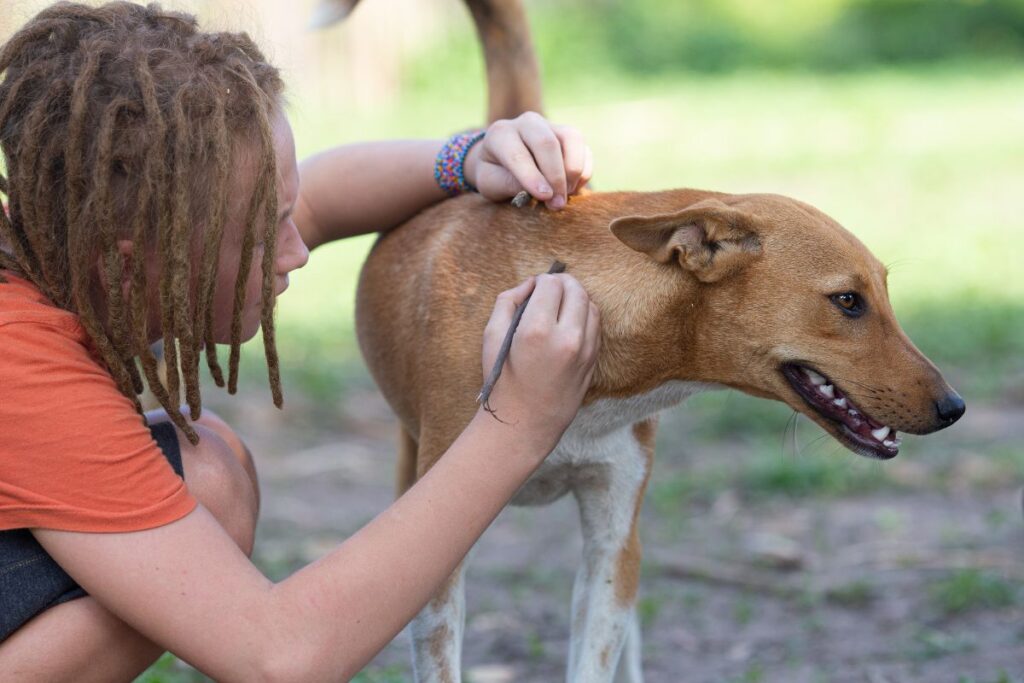Do you suspect that your dog is allergic to something? If so, you might be right. Just like humans, animals can develop allergies to food, their environment, and other factors.
Should you want to get to the bottom of your dog’s symptoms, read on. This guide will take you through the different types of allergies to be aware of and the steps to take to tackle them and your dog’s particular allergy.
What causes allergies?

As with humans, dogs’ allergies are typically caused by exposure to allergens that attack their immune systems. It could be pollen, certain foods, insect bites or something else that’s affecting your dog.
In some cases, allergies are inherited, so it’s important that you know your dog’s history early on. By knowing if the parents of your dog have any allergies, you can prepare for this.
Also, it doesn’t matter how old your dog is or what type of breed it is. Again, as with humans, allergies can develop at any time in your dog’s life.
What are the common allergies?
In order to work out what is affecting your dog, it’s worth starting by establishing the allergy that could be triggering the warning signs that things aren’t right. Food, flea, environmental and skin allergies are among the most common types to be aware of. Additionally, conditions like black spots on dog skin may also indicate underlying issues, which PawOrigins can help you navigate with expert advice and tailored solutions to keep your dog healthy and happy.
How to manage different allergies


The way you manage your dog’s allergies will depend on the type of allergies it has. It might have one or more of these. If you’re unsure of anything, seek advice from the professionals. We recommend that you speak to your vet before you proceed, especially if you suspect several allergies are affecting your dog.
- Food allergies
Signs of a food allergy can include vomiting, diarrhoea, and excessive flatulence. You might decide to eliminate certain foods to rule out the cause. Another way to manage this could be to try feeding your dog sensitive dog food that’s designed to offer a lighter diet.
- Flea allergies
Flea bites can have an adverse impact on your dog. But if there’s an allergy there, the reaction can be particularly intense. Itching, fur loss and inflamed skin are all symptoms that can indicate flea allergy dermatitis.
To treat this, comb your dog’s fur in order to ensure that it isn’t fleas that caused the allergic reaction. If you’re sure that it was fleas, you can use anti-flea products to clear the infestation. However, if you’re concerned about how your dog has reacted to the flea bites, take it to the vet for treatment.
- Respiratory
Respiratory allergies caused by the environment such as hayfever can affect dogs. These are caused by seasonal pollen and symptoms can include runny nose and watery eyes, sneezing, coughing and snoring caused by an inflamed throat.
If your dog is diagnosed with a pollen allergy, you might be given some medication by your vet. Avoid giving your dog any home remedies as this might be dangerous.
It might be tricky to establish what type of allergy is affecting your dog. Always seek expert advice before you proceed with treatment.
Images courtesy of unsplash.com and pexels.com












